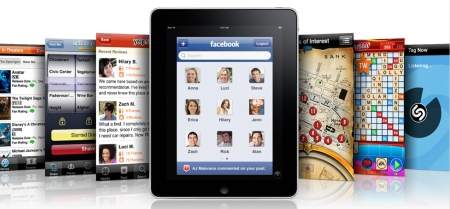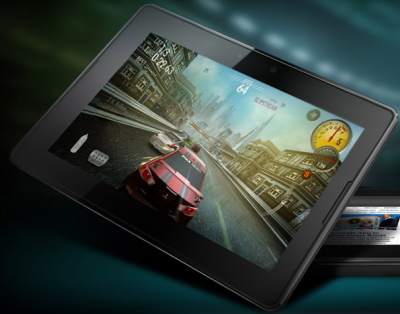When it comes to the “next big thing,” it seems like the only product consistently mentioned is the tablet.
After the unveiling of the iPad, one of the first consumer friendly tablets to really launch the category, more and more tablets have been planned. But this leaves analysts wondering, if tablets are the next big thing, what does this mean for the person computer industry?
Besides the Apple iPad, the only consumer tablet currently on the market is the Samsung Galaxy Tab. That said, the buzz over tablet technology is still going strong, with tablets expected from Archos, Acer, and multiple other companies.

On Monday, Citigroup’s team of analysts put our a report on computers, software, and semiconductors reporting that there will be an approximate 35 million tablets sold in 2011.
It’s estimated that the iPad will take the lead and end up accounting for three quarters of the total number of tablets sold.
Compared to PC sales estimated at 400 million, 35 million sold may seem like a minimal number, but analysts argue that the sale of these tablets will eliminate potential sales of 11 million PCs.
If true, this will reduce PC’s sales-growth rate to 9% as compared to 12%, putting a serious damper on the personal computing industry.
Some analysts argue that these numbers may even be too kind when it comes to tablet sales replacing personal computing.
Craig Berger, who follows Intel for FBR Capital Markets countered Citi’s number by estimating that 40 million tablets sold by Apple next year and 30 million for the rest of the tablet crew. He says tablets are “not good for PCs,” estimating that there is one PC sale lost with the sale of every 2.5 tablets sold.

Technology research firm Gartner lowered its own estimate of PC’s sold in 2011 to 352.4 million because of the introduction of the tablet. Their crew says that sales in 2011 will go from 18.1% sales growth to 15.9%.
Regardless of the exact numbers, it seems that almost all research firms have lowered their predicted estimates for personal computers sold as a direct result of tablets.
Tablets present an interesting dichotomy. Because of the hype surrounding them, computer manufacturers are pretty much forced to develop a tablet in order to stay competitive.
That said, it is hard to make a high profit margin off these consumer electronics devices as compared to a fat one with personal computers. So, the only way for computer manufacturers to really make money is to make up for low profit margins in a high volume of sales.
Apple will have no problem with this strategy, but Apple’s main competitor, RIM’s PlayBook tablet may face some problems since their traditional strategy has not been in high sales volume, but rather, network controls.
No matter what the numbers end up being, the introduction of the table does indeed put a damper on personal computing sales.
That’s why personal computing companies are putting emphasis on in-home networks that can be controlled using multiple devices like a personal computer and a tablet. For example, Acer’s ClearFi network, which allows users to access content across computers and view it on their television.
However, only time will tell if the tablet does indeed “cannibalize” the personal computer.






